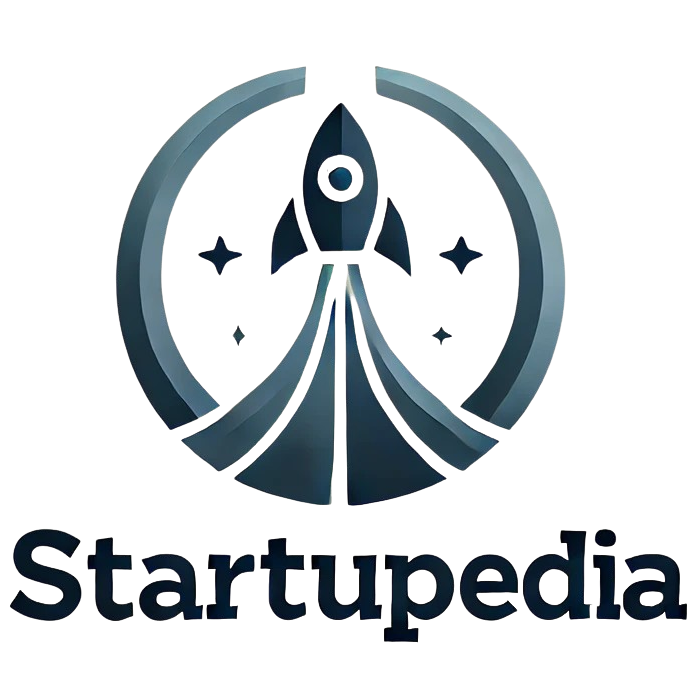Startup
 A startup office, often characterized by open spaces and collaborative work areas |
A startup or start-up is a company or entrepreneurial venture in its early stages, typically focused on developing a unique product or service, bringing it to market, and achieving rapid growth.[1] Startups are often associated with innovation, leveraging new ideas or technologies to address market needs or create new markets.[2] They are commonly found in industries like technology, healthcare, and e-commerce, but can exist in any sector.
Startups are usually small, agile, and operate with limited resources, often relying on venture capital or angel investment for funding.[3] They aim to scale quickly, differentiate themselves from competitors, and achieve a sustainable business model. This article explains the concept of startups in simple terms, covering their characteristics, funding, challenges, and impact, making it accessible for startup founders, investors, and non-business individuals.
Characteristics of a Startup
Startups differ from traditional businesses due to several key traits:
- Innovation-Driven: Startups often introduce new products, services, or business models. For example, Uber revolutionized transportation by offering a ride-sharing platform, while Airbnb transformed hospitality with its peer-to-peer accommodation model.[4]
- Scalability: Startups aim to grow quickly and serve large markets. Unlike a local bakery, a startup like Spotify can scale globally by offering digital music streaming.[5]
- Risk and Uncertainty: Startups operate in untested markets or with unproven products, leading to high risk but potential for high rewards.[6]
- Small and Agile Teams: Most startups begin with small teams, fostering flexibility and quick decision-making. This contrasts with large corporations with rigid structures.[7]
- Customer Focus: Startups prioritize understanding customer needs, often using lean methodologies to test and refine their products based on feedback.[8]
Types of Startups
Startups vary in their goals and approaches. Some common types include:
- Technology Startups: Focus on software, apps, or tech-based solutions, like Google in its early days.[9]
- Social Startups: Aim to solve social or environmental problems, often as social enterprises. Examples include TOMS, which donates a pair of shoes for every pair sold.[10]
- Small Business Startups: Focus on local or niche markets with less emphasis on rapid scaling, such as a boutique coffee shop.[11]
- Scalable Startups: Designed for exponential growth, often disrupting industries, like Amazon in its early years.[12]
Funding
Startups often require external funding to grow. Common funding sources include:
- Bootstrapping: Using personal savings or revenue to fund the business, allowing founders to retain control.[13]
- Angel Investors: Wealthy individuals who provide early-stage funding in exchange for equity.[14]
- Venture Capital: Firms that invest larger sums for equity, often in high-growth startups.[15]
- Crowdfunding: Raising small amounts of money from many people via platforms like Kickstarter.[16]
- Government Grants: Non-repayable funds provided by governments to support innovation, often for research-focused startups.[17]
Startups may go through multiple funding rounds (e.g., seed, Series A, B, C) as they grow.[18]
Challenges
Startups face significant hurdles, including:
- Financial Risk: Limited funds and high costs can lead to bankruptcy if revenue is delayed.[19]
- Market Competition: Competing with established companies or other startups for market share.[20]
- Team Building: Attracting and retaining skilled employees with limited budgets.[21]
- Product-Market Fit: Ensuring the product meets customer needs, a common reason for failure if not achieved.[22]
Impact of Startups
Startups significantly influence economies and societies:
- Economic Growth: They create jobs and drive economic development, especially in tech hubs like Silicon Valley.[23]
- Innovation: Startups introduce disruptive technologies, like Tesla's electric vehicles.[24]
- Cultural Influence: They promote entrepreneurial mindsets and inspire new generations of innovators.[25]
Examples of Successful Startups
Some well-known companies that began as startups include:
- Apple: Started in a garage, revolutionizing personal computing.[26]
- Meta: Began as a college networking platform, now a global social media giant.[27]
- SpaceX: Pioneered reusable rockets, transforming space exploration.[28]
See Also
References
- ↑ "What is a Startup?". Forbes. Retrieved 1 June 2025.
- ↑ Blank, Steve (2013). The Four Steps to the Epiphany. K&S Ranch. ISBN 978-0-9892005-0-9.
- ↑ "Startup Financing". Entrepreneur. Retrieved 1 June 2025.
- ↑ Ries, Eric (2011). "The Lean Startup". Harvard Business Review.
- ↑ "What Makes Startups Scalable?". Inc. Retrieved 1 June 2025.
- ↑ Christensen, Clayton (1997). The Innovator's Dilemma. Harvard Business Review Press. ISBN 978-1-4221-9171-2.
- ↑ "Why Startups Need Agility". Fast Company. Retrieved 1 June 2025.
- ↑ Ries, Eric (2011). The Lean Startup. Crown Business. ISBN 978-0-307-88789-4.
- ↑ "Tech Startups Explained". TechCrunch. Retrieved 1 June 2025.
- ↑ "Social Entrepreneurship". Entrepreneur. Retrieved 1 June 2025.
- ↑ "Small Business vs. Startup". U.S. Small Business Administration. Retrieved 1 June 2025.
- ↑ Blank, Steve (2012). The Startup Owner's Manual. K&S Ranch. ISBN 978-0-9849989-3-7.
- ↑ "Bootstrapping Your Startup". Forbes. Retrieved 1 June 2025.
- ↑ "Angel Investing Basics". Investopedia. Retrieved 1 June 2025.
- ↑ "Venture Capital Explained". VentureBeat. Retrieved 1 June 2025.
- ↑ "Crowdfunding for Startups". Crowdfunding.com. Retrieved 1 June 2025.
- ↑ "Grants for Startups". U.S. Small Business Administration. Retrieved 1 June 2025.
- ↑ "Startup Funding Rounds". Startup Grind. Retrieved 1 June 2025.
- ↑ "Why Startups Fail". CB Insights. Retrieved 1 June 2025.
- ↑ Porter, Michael (1980). Competitive Strategy. Free Press. ISBN 978-0-684-84148-9.
- ↑ "Hiring Challenges for Startups". Inc. Retrieved 1 June 2025.
- ↑ Blank, Steve (2013). The Four Steps to the Epiphany. K&S Ranch. ISBN 978-0-9892005-0-9.
- ↑ "Startups and Economic Growth". Brookings Institution. Retrieved 1 June 2025.
- ↑ "Disruptive Innovation by Startups". Harvard Business Review. Retrieved 1 June 2025.
- ↑ "The Startup Culture". Entrepreneur. Retrieved 1 June 2025.
- ↑ "Apple's Startup Story". Apple. Retrieved 1 June 2025.
- ↑ "The History of Facebook". The Guardian. Retrieved 1 June 2025.
- ↑ "SpaceX's Startup Journey". SpaceX. Retrieved 1 June 2025.
External Links
- "Startup Resources". U.S. Small Business Administration. Retrieved 1 June 2025.
- "Startup News and Trends". TechCrunch. Retrieved 1 June 2025.
